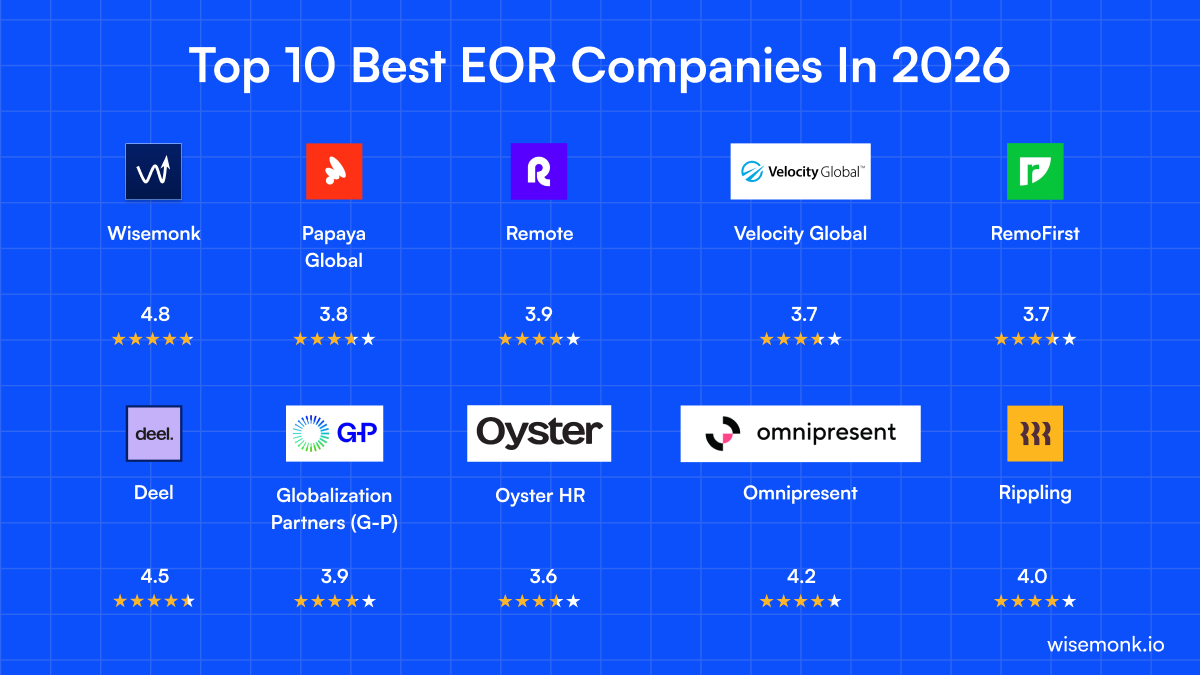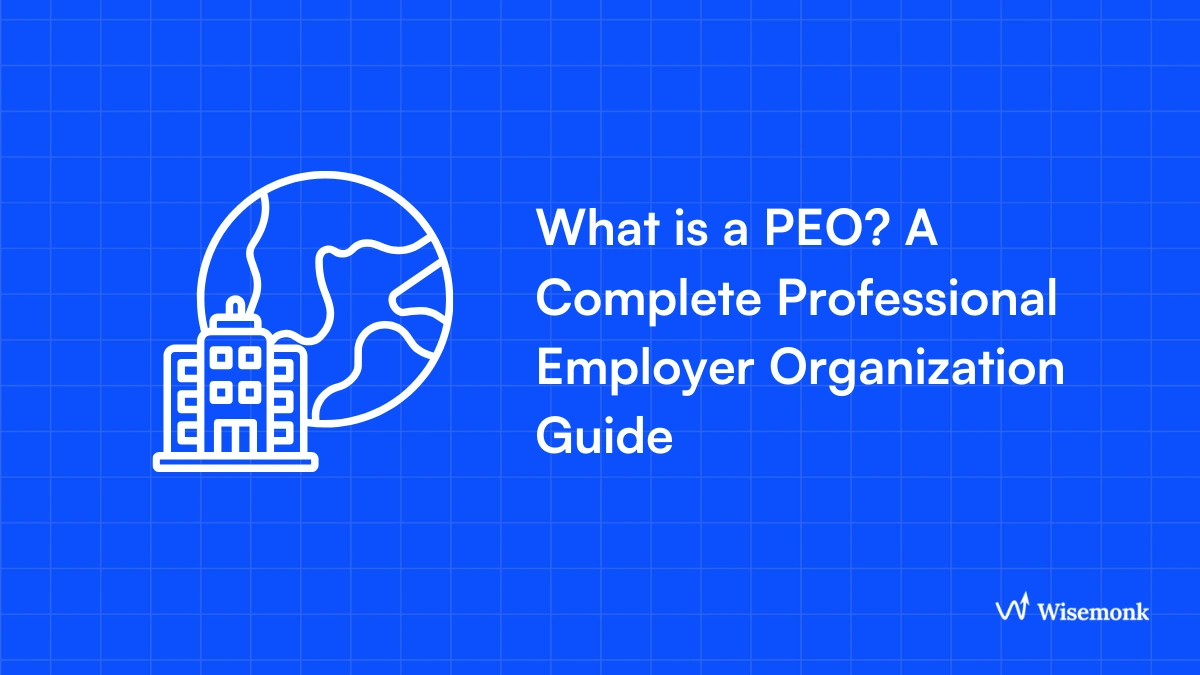- The main difference between in-house payroll and outsourcing is that in-house is run internally by a company’s staff and software for greater control, while outsourcing hands payroll to a third-party provider that delivers efficiency and lower effort.
- Choose In-House Payroll If: You have a small, straightforward team with strong payroll knowledge, the right software, and want complete control over payroll processes and sensitive data.
- Choose Outsourced Payroll If: You handle complex pay structures, multiple state or international employees, lack internal expertise, or want payroll integrated with other HR and accounting services.
- When choosing between in-house payroll and outsourcing, the key considerations are business size, budget, compliance, technology, and level of control needed.
Ready to simplify payroll and decide between in-house vs outsourcing? Contact us!
Discover how Wisemonk creates impactful and reliable content.
Trying to decide between in-house payroll and outsourcing? You’re not alone! Many U.S. companies and businesses worldwide face this exact question. In-house payroll is when your team runs payroll, while outsourcing is when a provider does it for you. Both options have their pros and cons, and the right choice depends on your company size, compliance knowledge, and how much control you want over payroll.
For growing businesses, this decision is especially important. Payroll errors can lead to compliance issues, unhappy employees, and wasted time, so it's essential to get it right.
In this article, we’ll highlight the key differences between in-house payroll and outsourcing. By the end, you’ll have a clear idea of which option suits your business best and supports your growth plans.
What is in-house payroll?[toc=In-House Payroll]
In-house payroll is when a company handles its entire payroll process internally, calculating wages and taxes, issuing payments, managing employee data, and filing reports, without using an external payroll provider. This gives businesses more control and customization but requires internal staff, payroll expertise, and investment in payroll software or an HRIS to stay compliant with tax laws.
Key Characteristics
- Full Control: Businesses manage payroll timing, data, processes, and compliance in-house.
- Dedicated Staff: Payroll tasks are handled by an internal payroll specialist, HR team, or accounting department.
- Software & Systems: Requires payroll software or an HRIS to automate calculations, maintain records, and reduce errors.
- Complete Responsibility: Includes tracking work hours, processing deductions, paying employees, maintaining records, and filing taxes at local, state, and federal levels.
What is outsourcing payroll?[toc=Outsourcing Payroll]
Payroll outsourcing is when a company hires an external provider to manage some or all payroll tasks. This includes calculating employee pay, deducting taxes, distributing salaries, filing tax forms, and ensuring compliance with labor and tax laws.
Key Characteristics
- Wage Calculation: Accurately calculates employee salaries and wages.
- Tax Withholding: Deducts federal, state, and local taxes from paychecks.
- Payment Distribution: Issues paychecks or direct deposits on time.
- Tax Filing & Payment: Submits required tax forms and pays taxes to authorities.
- Payroll Record Keeping: Maintains secure, accurate payroll records.
- Regulatory Compliance: Keeps up with changing tax and labor laws to avoid penalties.
What is the difference between in-house and outsourcing payroll?[toc=In-House vs. Outsourcing]
Deciding between managing payroll internally or outsourcing it to a specialized provider is a critical choice for any business. With our experience helping companies streamline payroll operations through managed payroll solutions, we have observed firsthand how each approach impacts efficiency, compliance, and cost management. Here are the key differences:
By comparing these aspects, we’ve highlighted how in-house payroll and outsourcing differ in control, cost, expertise, security, and efficiency. Understanding these differences can help your business choose the payroll option that best fits your needs.
What are the pros and cons of in-house payroll?[toc=In-House: Pros & Cons]
With our extensive experience helping companies manage payroll efficiently through payroll solutions, we understand the real-world advantages and challenges of keeping payroll internal. Here’s a clear breakdown:
Now that we’ve explored the strengths and drawbacks of in-house payroll, let’s turn to outsourced payroll and see how it compares.
What are the pros and cons of outsourcing payroll?[toc=Outsourcing: Pros & Cons]
Drawing from our years of experience helping businesses optimize payroll through reliable third-party payroll providers, we’ve observed that outsourcing can boost efficiency, ensure compliance, and strengthen data security, though it comes with a few considerations.
Here’s a straightforward look at the main pros and cons:
By weighing the pros and cons of both in-house and outsourced payroll, you can make an informed decision that best supports your business’s growth and compliance needs.
If outsourcing feels right for your business, Explore our article on "How to Outsource Work from the USA to India".
What factors should you consider when choosing between in-house and outsourced payroll?[toc=Factors to Consider]
With our extensive experience helping businesses optimize payroll, we’ve seen firsthand how the right choice can save time, ensure compliance, and improve efficiency. Here are the key factors to evaluate before deciding:
Business Size and Complexity
- Small Businesses: In-house payroll may work for small teams with simple payroll needs, but outsourcing can reduce the administrative burden when internal resources are limited.
- Medium to Large Businesses: Outsourced payroll is better suited for handling complex pay structures and larger employee bases. Providers also offer expertise in compliance and scalability that internal teams may not have.
Budget Considerations
- Compare the cost of hiring and training in-house payroll staff with outsourcing fees.
- Include software expenses, ongoing maintenance, and potential penalties for non-compliance.
Compliance and Accuracy
- Evaluate your team’s ability to stay up-to-date with changing payroll regulations.
- Outsourced providers bring specialized expertise, reducing compliance risks and minimizing payroll errors.
Technology and Security
- Assess your in-house payroll software versus the advanced automation tools offered by providers.
- Ensure strong data security protocols are in place to protect sensitive employee information.
Control and Flexibility
- Determine the level of customization needed for your payroll processes.
- Assess whether an outsourced provider can meet your unique payroll requirements effectively.
By carefully evaluating factors such as business size, budget, compliance, technology, and control, you can make an informed decision between in-house and outsourced payroll.
Discover all available options and make informed payroll decisions by exploring our comprehensive article on "Global Payroll Services: Complete Comparison Guide."
When to choose in-house payroll?[toc=When to Choose In-House]
Managing payroll internally provides maximum control and flexibility. In-house payroll is ideal when your team can handle the process efficiently without external assistance.
Choose In-House Payroll if:
- You have a small, straightforward team and don’t deal with complex payroll needs.
- Your team already has strong payroll know-how and the right software in place.
- You want full control over payroll processes and sensitive employee data.
- You need the ability to make quick changes to payments or filings without waiting on a third party.
If these points resonate with your business setup, in-house payroll could be the right choice to maintain control, accuracy, and efficiency.
When to choose outsourced payroll services?[toc=When to Outsource]
Outsourcing payroll can save time, reduce errors, and ensure compliance, especially for companies with larger teams or more complex payroll requirements.
Choose Outsourced Payroll if:
- You manage complex pay structures or have employees in multiple states.
- Your team lacks in-house payroll expertise.
- You want to integrate payroll with other HR or accounting services.
- Staying compliant with evolving tax laws and regulations is a priority.
Looking for cost-effective payroll solutions? Explore our detailed pricing comparison article on "Affordable Payroll Services: Pricing Comparison".
Why choose Wisemonk as your payroll outsourcing partner?[toc=How Wisemonk Helps]
Wisemonk is an Employer of Record (EOR) in India that helps global companies hire, pay, and manage talent without setting up an entity. We handle payroll, compliance, and employee benefits on your behalf.
Here’s what you get:
- Accurate Salary Calculations & Timely Payments: We manage precise payroll calculations, including overtime, bonuses, and reimbursements, ensuring every employee, full-time or contractor, is paid accurately and on time.
- Expert Tax Deductions & Compliance: Our team handles all statutory deductions (PF, ESI, TDS, Professional Tax) and filings, keeping you fully compliant with Indian laws while minimizing risks.
- Benefits Management: We create and manage employee benefits packages—from health insurance to retirement plans, helping you attract and retain top talent.
- Seamless Onboarding, Verification & Offboarding: We take care of onboarding, background checks, and smooth exits, ensuring compliance and a hassle-free experience for your team.
- Transparent Reporting & Employee Self-Service: Access detailed payroll and compliance reports, and provide employees with an intuitive portal for pay slips, tax documents, and leave management.
- End-to-End HR & Recruitment: From hiring and talent sourcing to HR administration and ongoing support, we simplify people operations so you can focus on strategic growth.
With Wisemonk, you don’t just get payroll; you gain a partner with deep local expertise, committed to helping your business thrive in India and beyond. Our solutions are tailored, scalable, and designed to support your global ambitions.
Ready to simplify payroll management? Contact us today to see how Wisemonk can help you build and manage a world-class team effortlessly and compliantly.
Frequently asked questions
What does "in-house payroll" mean?
In-house payroll is when a company handles all payroll tasks internally using its own staff and systems. This includes calculating wages, tax deductions, and distributing paychecks. It gives you full control but requires expertise and resources.
What are the disadvantages of in-house payroll?
It can be time-consuming and resource-intensive, especially for growing teams. Mistakes are costly, and staying updated on tax laws requires constant attention. You also need dedicated staff and software to manage everything accurately.
Is it better to outsource payroll?
Outsourcing can save time, reduce errors, and ensure compliance, particularly for complex payroll needs. However, it means less direct control over processes. It’s best when internal resources are limited or expertise is lacking.
What HR functions should not be outsourced?
Core HR functions like company culture, employee engagement, and strategic decision-making are best kept in-house. These tasks require deep knowledge of your team and business goals. Outsourcing works better for administrative and compliance-focused HR tasks.
How to run payroll in-house?
Set up payroll software, gather accurate employee data, and calculate wages, taxes, and deductions. Ensure compliance with federal and state regulations, and schedule regular pay runs. Double-check for errors before distributing paychecks.
What are three disadvantages of outsourcing payroll?
You lose some control over processes, face potential data privacy concerns, and may have limited customization options. Additionally, technical issues with the provider can sometimes cause delays.
Is outsourcing cheaper than in-house?
Outsourcing can save money on hiring, training, and software costs, especially for small or medium-sized businesses. But costs vary depending on provider fees and services, so a careful comparison is important.
.png)


